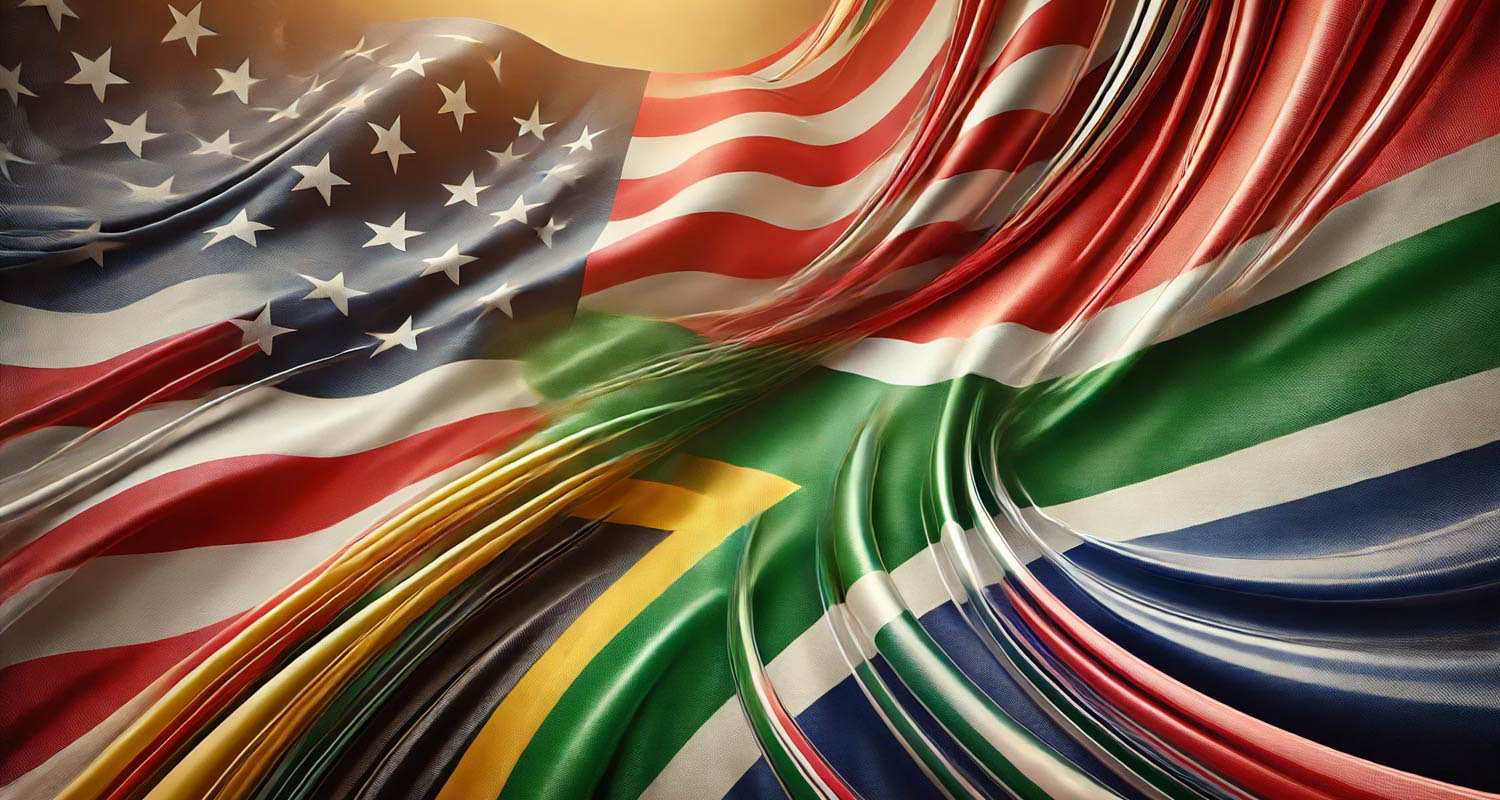Activities
Bilateral relations between the United States and South Africa have been facing an escalating crisis for several years, a situation that has intensified since the return of the Trump administration to power. This growing tension marks a critical turning point not only in the relationship between Washington and Pretoria but also in America’s broader engagement with the African continent—especially in the Horn of Africa and southern Africa.
This report explores the roots of the tensions between the two nations, analyzes key foreign policy disagreements, highlights the pivotal role of the African Growth and Opportunity Act (AGOA) in trade relations, and assesses the future trajectory of this relationship and its regional repercussions.
Decades of Complex Relations
U.S.–South Africa relations have long been complicated, particularly during the apartheid era when Washington adopted a policy of “constructive engagement” aimed at balancing pressure on the apartheid regime with containing Soviet influence. However, the Black majority in South Africa saw this approach as a betrayal of human rights.
Following the end of apartheid, the relationship fluctuated between cooperation and friction. Tensions deepened due to the U.S. designation of the African National Congress (ANC)—now the ruling party—as a terrorist organization during the Cold War, and Nelson Mandela’s continued inclusion on the U.S. terrorist watchlist until 2008, a lasting sore point for many South Africans.
AGOA: The Cornerstone of Trade Relations
The African Growth and Opportunity Act (AGOA), launched in 2000 under President George W. Bush, has been a key framework for U.S.–Africa economic cooperation. South Africa has economically benefited from AGOA, although disputes over intellectual property rights, market access, and trade practices have persisted.
South Africa’s BRICS membership—alongside Russia and China—and its alignment with narratives challenging the U.S.-led global order, now threaten its AGOA eligibility. With the Trump administration’s return, there are growing expectations that the future of AGOA will be reassessed, and South Africa may be excluded from its renewal due to these geopolitical orientations.
Major Foreign Policy Disagreements
Tensions between the two countries have intensified over the past two years, fueled by South Africa’s positions on key international issues, particularly:
- Its support for Russia following the invasion of Ukraine, including unconfirmed allegations of arms supplies.
- The 2024 genocide case it filed against Israel at the International Court of Justice, which provoked bipartisan outrage in the U.S. Congress.
- The Trump administration’s February 2025 decision to halt aid to South Africa and launch a special asylum program for white (Afrikaner) farmers, coinciding with controversial land ownership legislation in South Africa.
Diplomatic relations reached a breaking point when U.S. Secretary of State Marco Rubio withdrew from the G20 ministerial meeting, accusing South Africa—this year’s host—of being “anti-American.”
Future Scenarios for the Relationship
Two possible trajectories lie ahead for U.S.–South Africa relations:
1. Continued Deterioration and Strategic Disengagement
The current escalation may lead to reduced trade, frozen diplomatic channels, and a breakdown in regional security and counterterrorism cooperation. Such a scenario could undermine U.S. influence in southern Africa and accelerate South Africa’s pivot toward alternative alliances with China and Russia.
2. Reconciliation and Renewed Understanding
While challenging, reconciliation remains possible. It would require addressing core disagreements, particularly in foreign policy, and building consensus around shared interests—paving the way for improved trade, diplomatic, and security cooperation across the continent.
The Strategic Importance of South Africa
South Africa remains a critical strategic partner for the United States in several domains:
- A primary source of rare minerals essential for U.S. advanced tech industries.
- A leading diplomatic force within the African Union and a key player in regional development and peace efforts.
- A potential partner in managing regional security and peacekeeping operations in southern Africa.
Translated by the Iraqi Dialogue Institute – Foreign Policy Research Institute


